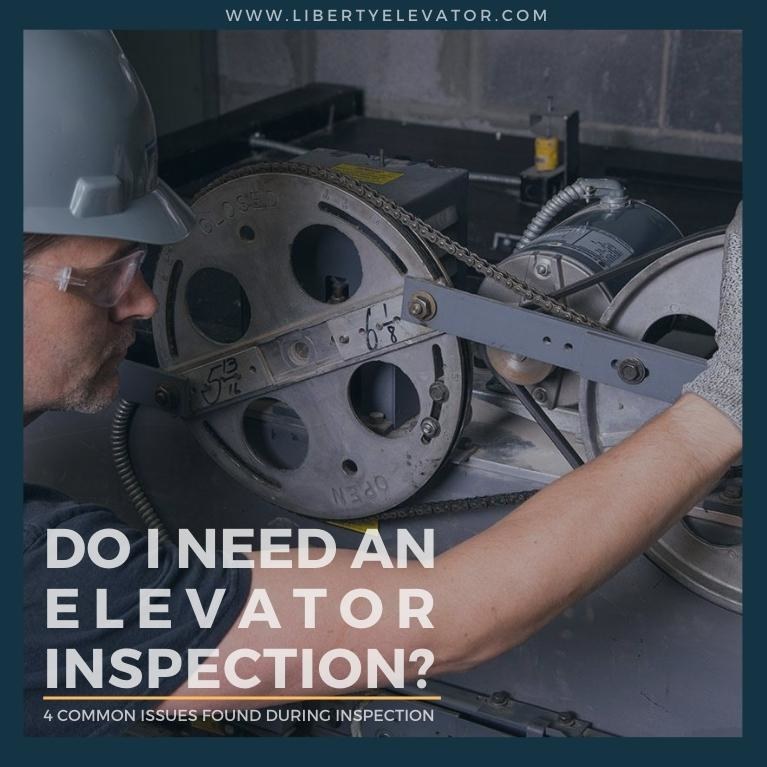4 Common Elevator Issues Discovered in Routine Inspections
Routine elevator maintenance is essential to keeping your commercial elevator operating efficiently. Elevator inspections aren’t just about preventative maintenance, they're also about discovering larger problems early, before they start deteriorating the ride quality & result in costly repairs or elevator entrapments. A scheduled maintenance plan with a reputable service provider is the key to a healthy & efficient elevator. If it's been a long time since your last elevator service, you should be prepared to uncover some of these common problems during your initial inspection.
Elevator Oil and Lubrication Contamination
Proper oil levels and lubrication contribute to the smooth operation of your elevator, but it’s possible for small metal particles to make their way into these fluids as your elevator ages. When contaminants become too prevalent in your oil, they start to contribute to the premature breakdown of your elevator components and effect the operation of your elevator. Part of your routine professional maintenance includes checking for metal in the oil of your elevator and to replace it regularly. This inspection can lead to the awareness of other potential areas of wear. Improper oil maintenance and lack of lubrication are common contributors to many costly elevator repairs.
Worn Elevator Sheaves
Elevator sheaves and hoist ropes work together to suspend the elevator and carry it as it travels between the floors of your building. Over time, sheaves can become worn, which starts a cycle of putting extra wear on the ropes that in turn put further wear on the sheaves. Catching this problem early can prevent later sheave and hoist rope failures through sheave re-grooving or replacement. Excessive rope wear is common on older elevators and often is the first sign that it’s time to modernize your entire lift.
Elevator Power Failures
Elevators need large uninterrupted supplies of power to operate, but fluctuations in the voltage of your commercial building’s utility system can greatly impact the motor and potentially damage the elevator. A power quality survey will be able to recognize whenever the elevator is receiving over or under voltage and identifying surges that may cause burnout of important system components. Stabilizing the power supply to your elevator is essential to maintaining proper operation of your vertical transportation system.
Elevator Motor Bearing Malfunctions
The bearings are an essential part of the elevator motor and a key component to the efficiency of your entire vertical transportation system. Noisy bearings among other signs of bearing wear inform you of potential motor issues that can result in damage and costly repairs. Installing inductive absorbers or replacing bearings can prevent dangerous currents from forming and keep your motor’s energy costs down.
While there are many problems that can appear during routine maintenance, it’s better to discover these problems now rather than when they start to impact your elevator operations. Preventative maintenance will enable your elevators – and your commercial building – to continue to run smoothly.
Liberty Elevator's Repair & Maintenance Service
After 60 years of successful growth in the New York Metro area, Liberty Elevator Corporation has expanded it's elevator service reach to include South Florida. Now providing Miami, Fort Lauderdale, Palm Beach, Naples and the surrounding area with certified union elevator mechanics to perform maintenance, modernizations & new elevator construction in the commercial real estate market.
Whether choosing a customized elevator maintenance program, installing nonproprietary equipment, or providing a flexible agreement, Liberty Elevator provides knowledgeable recommendations for various models and vintages of elevator equipment.
To get your elevator on a routine maintenance schedule, contact Liberty Elevator today!


